The year 1937 in film involved some significant events, including the Walt Disney production of the first American full-length animated film, Snow White and the Seven Dwarfs.
The following is an overview of 1931 in film, including significant events, a list of films released and notable births and deaths.
The following is an overview of 1926 in film, including significant events, a list of films released, and notable births and deaths.
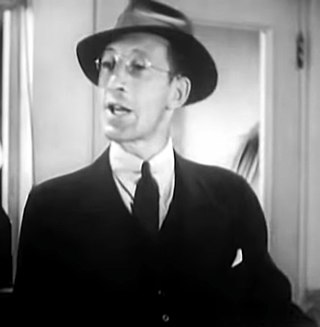
Charles Lane was an American character actor and centenarian whose career spanned 76 years.

Ralph Forbes was an English film and stage actor active in Britain and the United States.

Sidney Alderman Blackmer was an American Broadway and film actor active between 1914 and 1971, usually in major supporting roles.
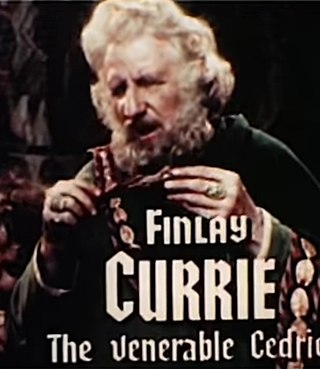
William Finlay Currie was a Scottish actor of stage, screen, and television. He received great acclaim for his roles as Abel Magwitch in the British film Great Expectations (1946) and as Balthazar in the American film Ben-Hur (1959).

John Beach Litel was an American film and television actor.

Alice Adams is a 1935 romantic drama film directed by George Stevens and starring Katharine Hepburn. It was made by RKO and produced by Pandro S. Berman. The screenplay was by Dorothy Yost, Mortimer Offner, and Jane Murfin. The film was adapted from the novel Alice Adams by Booth Tarkington. The music score was by Max Steiner and Roy Webb, and the cinematography by Robert De Grasse. The film received Academy Award nominations for Best Picture and Best Actress.

John Grant Mitchell Jr. was an American actor. He appeared on Broadway from 1902 to 1939 and appeared in more than 125 films between 1930 and 1948.

Richard Whitlock Tucker was an American actor. Tucker was born in Brooklyn, New York. Appearing in more than 260 films between 1911 and 1940, he was the first official member of the Screen Actors Guild (SAG) and a founding member of SAG's Board of Directors. Tucker died in Woodland Hills, Los Angeles from a heart attack. He is interred at Forest Lawn Memorial Park, in an unmarked niche in Great Mausoleum, Columbarium of Faith.

Holmes Herbert was an English character actor who appeared in Hollywood films from 1915 to 1952, often as a British gentleman.

Ronald Alfred Shiner was a British stand-up comedian and comedy actor whose career encompassed film, West End theatre and music hall.
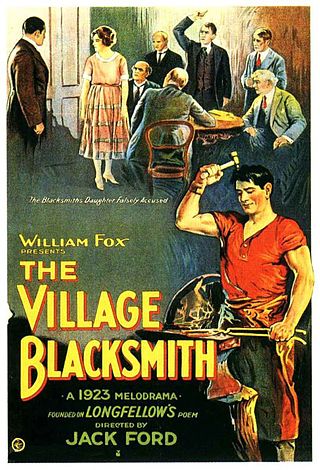
The Village Blacksmith is a 1922 American silent melodrama film directed by John Ford and produced and distributed by Fox Film Corporation. One of the eight reels survives at the UCLA Film and Television Archive, and therefore the film is considered to be lost. It was loosely adapted from the poem of the same name by Henry Wadsworth Longfellow.
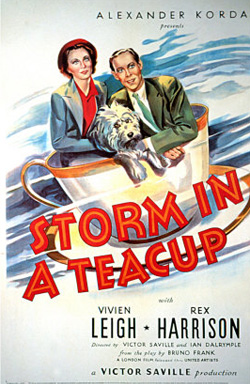
Storm in a Teacup is a 1937 British romantic comedy film directed by Ian Dalrymple and Victor Saville and starring Vivien Leigh, Rex Harrison, Cecil Parker, and Sara Allgood. It is based on the German play Sturm im Wasserglas by Bruno Frank, as well as the English-language adaptations: London's Storm in a Teacup and Broadway's Storm Over Patsy, both written by James Bridie. A reporter writes an article that embarrasses a politician. Meanwhile, the newspaperman is also attracted to his target's daughter.

Stage Mother is a 1933 American pre-Code drama film directed by Charles Brabin and starring Alice Brady and Maureen O'Sullivan. The film is about a frustrated vaudeville performer who pushes her daughter into becoming a star dancer; selfishness, deceit and blackmail drive mother and daughter apart until a reconciliation at the end of the film. The screenplay was written by John Meehan and Bradford Ropes, based on the 1933 novel of the same name by Ropes.

This page is devoted to the film and television work of Francis X. Bushman. They encompass the years 1911-66.
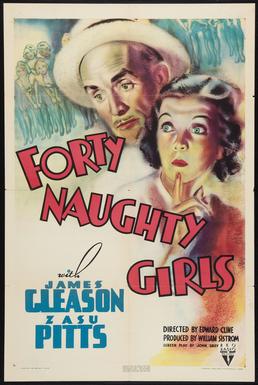
Forty Naughty Girls is a 1937 American comedy mystery film directed by Edward F. Cline and written by John Grey. The film stars James Gleason, ZaSu Pitts, Marjorie Lord, George Shelley and Joan Woodbury. It is the sixth and final entry in RKO Pictures' series of Hildegarde Withers films. This film was the sixth film in the Hildegarde Withers-Oscar Piper series, and the second film in which ZaSu Pitts appeared as Hildegarde. Before Pitts, Edna May Oliver and Helen Broderick had played the role.

We're on the Jury is a 1937 American comedy film directed by Ben Holmes and starring Victor Moore, Helen Broderick and Louise Latimer. The screenplay by Franklin Coen was based on the 1929 play, Ladies of the Jury, written by John Frederick Ballard. The film was produced by RKO Radio Pictures, which premiered it in New York City on February 11, 1937, with a national release the following day on February 12. The film received mixed reviews, one reviewer stated Broderick and Moore's performances "redeem an otherwise mediocre picture."
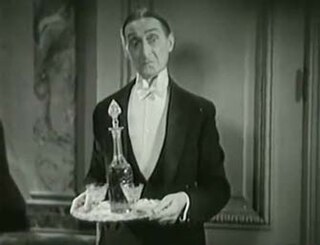
Edgar Norton was an English-born American character actor.

















